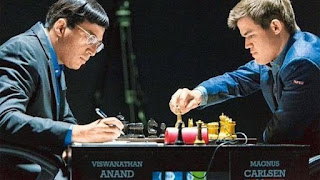Sports serves as a laboratory for us to learn about life
Nearly every one of us has played a sport at some point in our lives. Most of us enjoy watching sports. Events like the FIFA World Cup or Wimbledon attract television and online viewership in billions. Hosting the Olympic games is seen as a matter of national pride, and can impact the fortunes of an entire country or population. The business of sports is a $500-billion industry worldwide, and growing. Clearly, sports is a substantial aspect of the world we live in.
But what can we learn from sports? Remarkably, this is not a question that schools or universities have directly asked or answered. Universities, for example, have focused on developing excellence in sports, and devote substantial resources to build winning teams and nurture champion athletes. So much so that college football or basketball in America is widely followed as a spectator sport. The Oxford-Cambridge regatta has become an inherent and historic part of elite higher education in the UK.
This in itself is a good thing. But there is a more substantial role that sports must play in educational institutions. I have invited Viswanathan Anand, one of the most accomplished chess players in history, to share his views with me in this column. Anand believes that sport imitates life, and shows you how a game needs to be played correctly. In chess, for example, two players may be equal in many spheres of the game, but on a given day, one person wins not because of complete chess knowledge, but on that day their preparation, intuition and guts worked in their favour. Going beyond developing excellence in sports, universities must embrace sports as a laboratory for life skills—where we can experiment and learn about life.
This can be structured around several questions. First, how do we learn to cope with and learn from failure? Losing is an essential part of sports. No one likes to lose and, yet, we all do. Playing sports regularly and, therefore, losing somewhat regularly gives us an opportunity to develop a culture of learning from failure. Anand believes that failures sometimes teach us more than success. When you lose a game in chess, you can pinpoint the exact move that turned the result. That could be a calculation oversight, an emotional oversight or plain physical fatigue. A good response to failure is not to brood, but to introspect, identify areas of improvement, and work hard to get better. We must similarly respond to failure in our jobs, startups or other pursuits.
Second, how do we develop a culture of constant improvement? When Anand sits down to prepare for a match, he focuses on the problems in his preparation and just thinks of ways to solve them. Without worrying about large, long-term goals or expectations, he just thinks about what he should be working on for his next game. This cycle of constant review and improvement must carry over into our professional lives.
Third, how does one learn to deal with pressure situations and perform under pressure? Anand says that when you have had enough experience, dealing with pressure becomes second nature. Sports can be great training grounds to give us this experience. Anand believes that pressure goes away the moment a game begins, because you only worry about the position on the board and not about other things. Each of us may deal with pressure differently, but we must learn to deal with the stress situations we face in our lives. Sports offer a great testing ground for this.
Fourth, how do you play fair and play by the rules all the time, without exception? When you knick an edge of your cricket bat to the wicket keeper, and the umpire hasn’t heard it, do you walk off the pitch back to the pavilion or hold your ground? Anand believes that playing fair keeps his life simple and keeps him out of real-life chess situations. How you handle these situations in sports mirrors how you would handle them in life.
So how can modern universities leverage the potential of sports to help students learn about life? The way to do this is to integrate sports into the curriculum thoughtfully, and open faculty positions for accomplished sportspersons who think cerebrally about how sports relate to life. Students must be encouraged to reflect on their regular sporting experience, whichever sport they choose to play, and determine what life lessons they can draw.
In today’s world, there are other interesting questions too which sports can help us think about. How is a sport evolving, for example, and what shape is it likely to take 20 years from now? Think of the advent of T20 cricket or chess robots.
Trends in sports tend to mirror broader trends in society, such as shortening attention spans, and studying these can lead to interesting insights.
As yet another example, we might think about what it means to be a good team player in a virtual world, where online gaming participants team up virtually with other players they have never met or otherwise interacted with.
Sports mirror life, and therefore serve as a great laboratory to experiment with, learn about and prepare for life in an unpredictable world. Universities must embrace this view for the benefit of their students.

Comments
Post a Comment